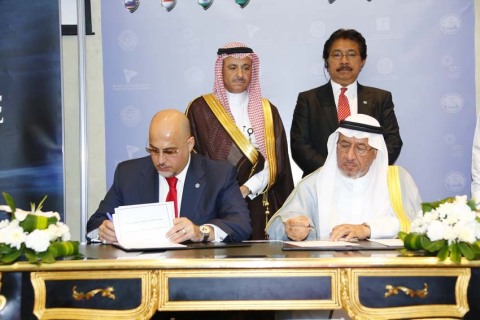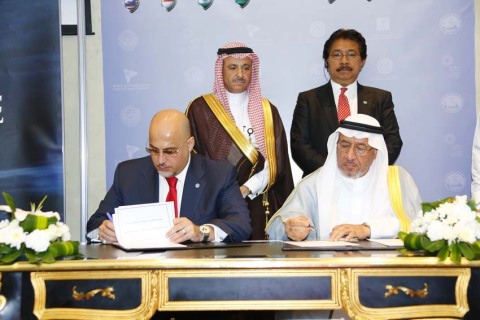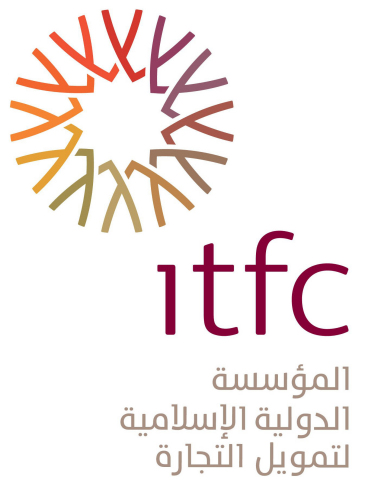RIYADH, Saudi Arabia--(BUSINESS WIRE)--Embraced by international organizations, public and private sector leaders at the Council of Saudi Chambers (CSC) Headquarters in the Kingdom of Saudi Arabia (KSA), the International Islamic Trade Finance Corporation (ITFC), a member of Islamic Development Bank Group (IsDB), a subsidiary organ of the Organisation of Islamic Cooperation (OIC), and the Global Coalition for Efficient Logistics (GCEL) executed a historic MOU triggering a new era of trade efficiency towards a vast expansion of trade finance for OIC Countries through the HumaWealth Program.
The HumaWealth 18 month global program will empower the Digital Economy by providing the tools unleashing the power of 21st century technology by delivering a new era of integrated e-commerce, e-finance, e-insurance and e-logistics to achieve new levels of trade efficiency.
The proposed Digital Economy will reduce annual trade costs by USD1.3 trillion (USD75 billion for OIC), increase trade by USD1.2 trillion, providing a USD6 trillion services market opportunity and creating a USD1 trillion SME fund thus generating 100 million jobs.
The MOU was signed by Dr. Waleed Al-Wohaib, ITFC CEO and Captain Samuel Salloum, GCEL Co-Chairman, and witnessed by Tan Sri Abdul-Rahman Mamat, Asia Logistics Council Chairman and Dr. Khaled Al-Otaibi, CSC Secretary-General.
The MOU signing followed the release of the KSA Trade Efficiency Assessment, conducted by GCEL in cooperation with the CSC, Saudi Ministry of Commerce and Industry, Saudi Customs, League of Arab States, Islamic Centre for Development of Trade, ITFC, Nielsen Company and Frost & Sullivan. The report illustrates how the Digital Economy ecosystem will make trade more efficient and transparent in order to facilitate global integration of financial services to the trade pipeline. This innovation will boost the manufacturing, agricultural and services industries within MEA thereby meeting the ambitions of the region’s citizens by creating 32 million jobs.
Similar assessments were conducted with government and private sector experts in G20 countries Indonesia and India (Turkey in process) as well as Malaysia. The results yielded that 80% of trade participants have no system and 88% want the proposed Digital Economy Platform. To date more than 22% of the world’s population comprising 1/3 of the G20 citizens want the Digital Economy. GCEL plans to conduct Trade Efficiency Assessments for the remaining 15 G20 countries to present the voice of the people to their leaders during the 2015 Turkey G20 presidency.
Dr. Al-Wohaib stated, “The trade efficiency assessment findings revealed that the Banking sector ranked last in terms of integration among all the trade pipeline participants scoring an average of 0.90 out of 5, (5 being what today’s technology makes possible. We must continuously seek innovative ways to improve trade efficiency and increase the Trade Finance market, this is the foundation of our MOU with GCEL”.
According to the VISA Commercial Consumption Expenditure 2011 Index, the global B2B market is USD109 trillion. A recent Asia Development Bank study revealed that of USD 4.6 trillion in financing requests received during 2011, approximately USD1.6 trillion were rejected and USD3 trillion were approved representing only 2.7% of the total B2B expenditure market.
Captain Salloum stated, “The 21st century Digital Economy environment is an ecosystem that permits global integration of products and service offerings with intelligent proficiency to match sellers to targeted buyers. This environment is based upon dynamic validated real-time information accumulated and continuously updated through the normal course of trade activities rather than invalidated data and unsubstantiated reviews presently in use.
The main benefit of this ecosystem is that it allows the creation of a smart e-finance matrix that provides financial institutions the ability to reach their full potential in global trade finance. This point-to-world environment enhances the integration of financial institutions in the global trade pipeline. This provides the tools to lower underwriting costs and transaction risks, allow greater control over the use of financing proceeds, increase ability to seize, reroute and liquidate assets when required, as well as ease the burden of regulatory compliance”.





